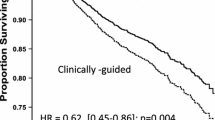Abstract.
Synthesis and release of the natriuretic peptides rises incrementally with increasing degrees of cardiac dysfunction. The prime stimulus is intracardiac distending pressures with modulating influences including age, gender, renal function and other aspects of neurohormonal status. Measurements of plasma natriuretic peptide concentrations and of B-type natriuretic peptide and amino-terminal pro-B-type natriuretic peptide, in particular, show promise in diagnosis of heart failure, risk stratification in those with known heart disease, and in adjustment of therapy. Recombinant B-type natriuretic peptide itself can be administered as a treatment. These diagnostic, prognostic and therapeutic applications of B-type natriuretic peptide require a considerable expansion beyond current evidence, but it appears likely that the true role of plasma peptide measurements and peptide administration will become firmly established within the coming 5 year period.
Similar content being viewed by others
Author information
Authors and Affiliations
Corresponding author
Rights and permissions
About this article
Cite this article
Richards, A.M. The natriuretic peptides in heart failure. Basic Res Cardiol 99, 94–100 (2004). https://doi.org/10.1007/s00395-004-0461-z
Published:
Issue Date:
DOI: https://doi.org/10.1007/s00395-004-0461-z




